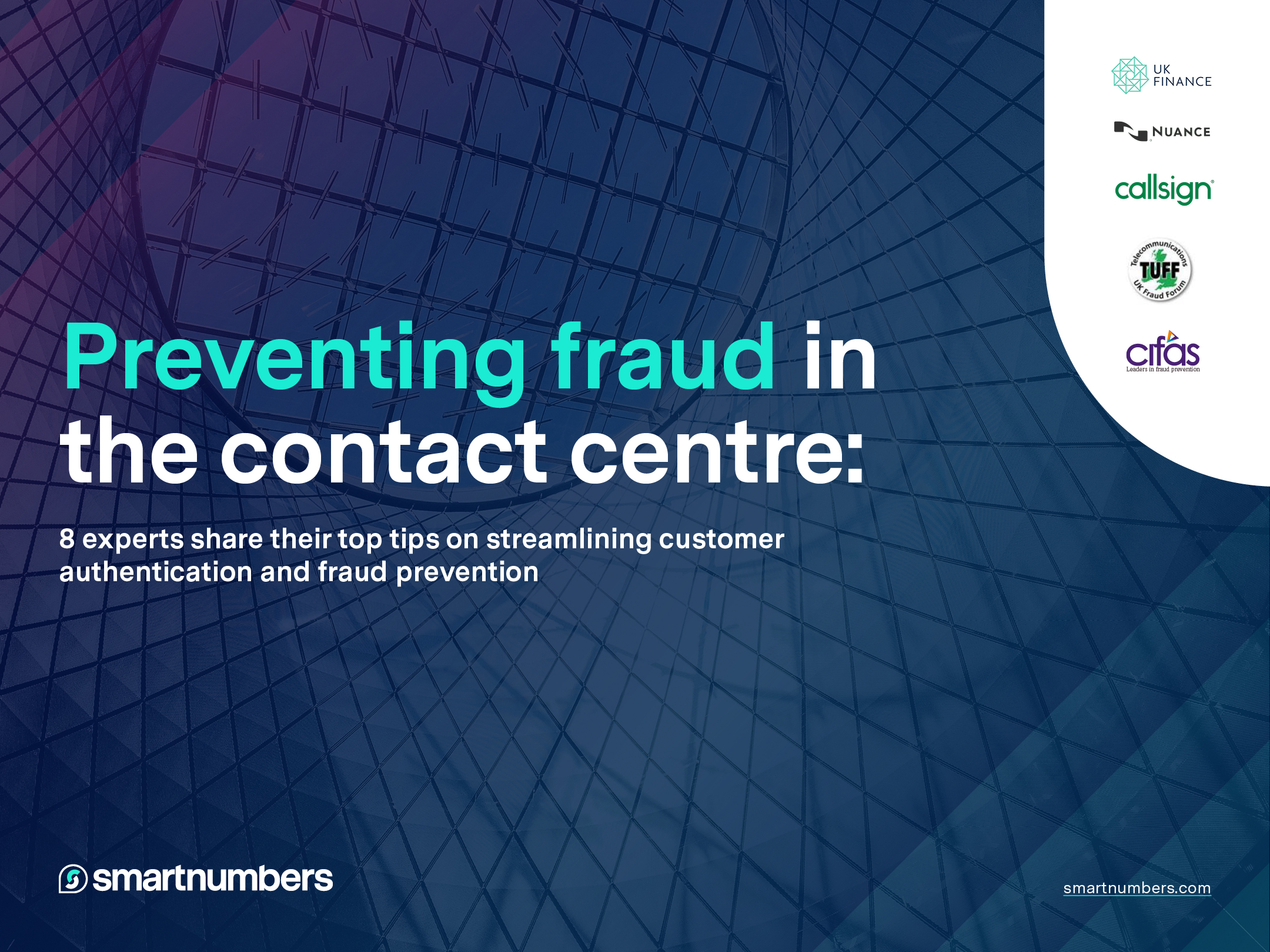Over the last year, the quantity and severity of fraud attacks has vastly accelerated. Disruption and instability, together with an economic recession is creating a perfect storm of chaos that fraudsters everywhere are seeking to capitalise on. For many organisations, secure authentication and fraud prevention are the watchwords of 2021.
But when it comes to preventing fraud in the contact centre, there are several unique challenges that organisations face. To find out more about these challenges and how to overcome them, I sat down with John. S, an industry expert in fraud prevention in financial services.
Grant White, Smartnumbers: Thanks for taking time to talk to us. What are the biggest fraud trends you’re currently seeing in banking?
John. S: Like any type of threat, fraud is constantly evolving. Fraudsters are quick, reactive and they’re always looking for new ways to slip through the net. This means organisations must be extremely agile to emerging threats in order to protect their customers. This is always going to be a challenge.
The situation has become much more difficult because of the sheer volume of attacks. In a recession, you do sadly see more people turning to fraud and that’s being reflected in what we’re seeing at the moment. For many organisations, it’s a challenge simply having the resources to deal with this.
At the same time, the pandemic has caused instability and disruption – and there’s nothing fraudsters love more than that. The move to remote working is also making things more difficult because organisations have less visibility over their contact centre agents at a time when fraud attacks are more common than ever. All of this is adding up to a perfect storm that’s making life incredibly difficult for agents who are having to fend off these attacks.
Grant White, Smartnumbers: That’s an interesting point about the impact of the pandemic. As agents are working remotely, do organisations need to focus more on education to help them become more resilient?
JS: Any kind of education is always going to make a difference. The more that contact centre agents understand about fraud, the harder it makes it for attacks to slip through the defences. For that reason, investing in education for contact centre agents is worthwhile. But it’s never going to guarantee that you’ll stay safe – because education isn’t everything.
I’ve been working in this industry for about ten years and I’ve never encountered an impenetrable defence against fraud. That’s not because of technology, it’s because there are people involved and people are fallible. Education can only help against that to an extent.
The other problem here is that people tend to make mistakes in periods of high stress and that’s been one of the difficult factors during the pandemic. Even in normal times, contact centres agents are under a lot of pressure to get calls wrapped up as quickly and efficiently as possible. When you’re under pressure like that, mistakes are going to happen. So much of the challenge for contact centres is to make sure they’re investing in their people enough to help stop this from happening.
Grant White, Smartnumbers: If education on its own isn’t enough, what else can organisations do to help prevent fraud attacks?
JS: The vital thing is to make sure you’re investing in intelligence as well as training. To be serious about fraud prevention, you need a critical intelligence gathering department. That’s essentially a team that’s dedicated to researching and understanding new threats as they happen, rather than after the money’s left the account. Any other approach is going to be too reactive. Organisations need to be as proactive as possible in identifying new threats.
The challenge for many organisations here is structural. Often, fraud, legal and security teams are segregated, which means that it can be difficult to coordinate operations and priorities between them. Fraudsters aren’t bogged down with corporate processes and layers of governance, which means they can generally produce new fraud tactics much quicker than you can react to them. Your intelligence team has an important role to play in connecting priorities and information across different functions, so you can have the visibility you need to respond in good time.
Grant White, Smartnumbers: What work can organisations do on a cross-industry basis to share information better?
JS: One big problem is that organisations aren’t used to proactively sharing information with other organisations – particularly competitors. But fraud prevention only works when people work together. Fraudsters will often try and gain the information they need for attacks from multiple companies. So, if you’re only focusing on the information, you have access to, you’re only getting half the story. There’s nothing competitive about fraud prevention – the more people work together the more resilient everybody becomes.
The most important thing an organisation can do is break out of that mindset. Whatever industry you’re in, there are a wealth of institutions whose role it is to coordinate intelligence and information. It’s important to work out which ones are relevant to your sector and work with them where possible.
Grant White, Smartnumbers: That’s very insightful. Great to talk to you today, thanks for your time.
When it comes to fraud prevention, there’s no one stop solution. That’s as true in the contact centre as it is anywhere else. Whether it’s educating your agents, sharing information with other organisations or investing in the right technology – effective fraud prevention requires a multi-channel strategy. If you want to learn more about protecting your contact centre from fraud, download our new eBook.

